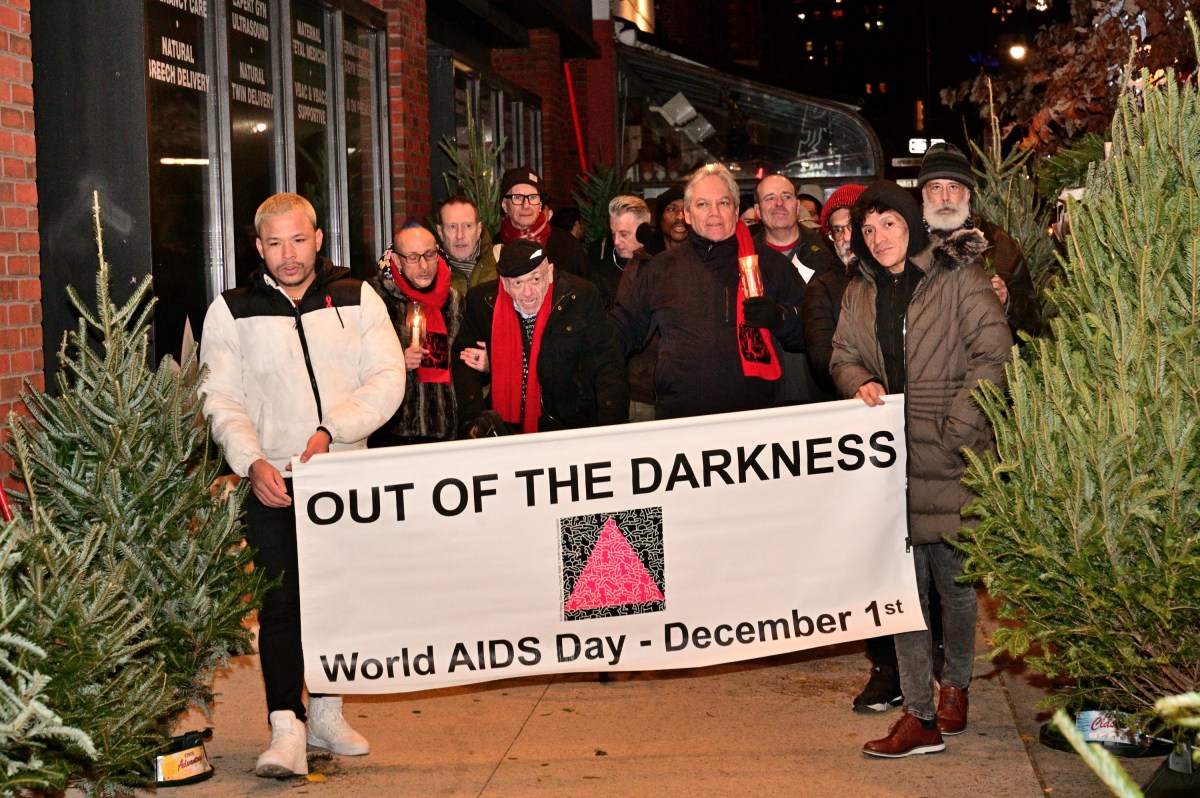Theater community reflect struggles, resilence
BY SARA M. SIMONS, M.A. & PERRY N. HALKITIS, Ph.D. | Throughout 2011, the 30th anniversary of AIDS is being commemorated in numerous ways — from renewed activism to conferences exploring innovations in medicine to various initiatives at universities, hospitals and community agencies.
The New York theater community is realizing this moment of reflection, with the highly successful Off-Broadway revival of Tony Kushner’s gay fantasia “Angels in America” — as well as the Broadway debut of Larry Kramer’s seminal 1985 play “The Normal Heart.” Revisiting these works, which first appeared at a time when such subject matter was still somewhat foreign to mainstream audiences, reminds us of the staggering losses suffered as well as the work yet to be accomplished in our country — where annually, 60,000 people become infected (primarily gay men and African Americans).
While most medical and social scientists have been slow to recognize the role that social structure plays in perpetuating disease or in maintaining the health of a population, artists have always been at the forefront of this understanding. As it has effectively demonstrated throughout the AIDS epidemic, playwrights in particular have been courageous in its social commentary regarding the public health, and in documenting the experience of humanity through times of disease and loss.
Many who did not witness the devastation of the 1980s may be unfamiliar with how the work of Kushner and Kramer — as well as that of the AIDS Theater Project (an educational theater company featuring HIV-positive actors) — brought to life the trauma of our city and our nation. Each year in our HIV Prevention and Counseling class, students read primary works from that time, including ’80s-era reports from the Centers for Disease Control, newspaper clippings and academic publications. But what brings the reality of the time to life most effectively is reading the volume “The Way We Live Now: American Plays & the AIDS Crisis” — which includes works from the powerful voices of Terrence McNally, Harvey Fierstein and William Hoffman, among others.
Theatre can be a powerful tool to educate and document the social experience of an epidemic. “The Normal Heart” takes place in the earliest days of AIDS and powerfully depicts the sense of confusion, frustration and anger as gay men began rapidly dying from a mysterious illness. The play also portrays the divisions within the gay community around activism and organizing in the early days of AIDS. “Angels in America” demonstrates the manner in which AIDS became a crucible for both personal courage and the strength of relationships, while at the same time shining a strong spotlight on the hypocrisy of Republican figures such as Roy Cohn, a closeted homosexual who died of the disease. Paula Vogel’s play “The Baltimore Waltz” explores the effects of AIDS on a family through the story of a woman who constructs a fantasy world to combat the reality of her brother dying. More recent plays address the changing face of the AIDS epidemic. “In the Continuum,” by Danai Gurira and Nikkole Salter, follows parallel stories of two black women, one in Los Angeles and one in Zimbabwe, coming to terms with their HIV diagnoses, and demonstrates the worldwide pandemic.
Over the last 30 years, the theatrical response has reflected the struggles and resilience of people living with and affected by HIV/AIDS. Theatre is being used to educate, to evoke empathy and to advocate for change to enhance public health. The latter continues to emerge as an area of scholarship and study, which was showcased recently at a conference sponsored by the Program in Educational Theatre at New York University’s Steinhardt School of Education, Culture, and Human Development.
The conference included a plenary panel of actors, fundraisers and playwrights discussing how to use theatre to address HIV — and included actor/director Karl O’Brian Williams, who spoke about “Positive,” a Jamaican play by Trevor Rhone about HIV that is being used as an educational theatre piece in NYC communities; actress/playwright Nikkole Salter, who spoke about her Obie-winning play “In the Continuum”; and Joe Norton, the Director of Education and Outreach for Broadway Cares/Equity Fights AIDS. The panel considered the ways in which theatre can serve as part of a larger public health movement, “making a difference towards the difference,” as Norton put it. Salter spoke about the importance of using humor to address the topic of HIV/AIDS, as a hook to engage the audience in a piece before delivering powerful messages.
The keynote speech at the conference was delivered by playwright and AIDS activist Larry Kramer, who gave us a voice and showed us how to fight for our lives, through his activism and the power of his words both in his speeches and in his plays, all of which shed light on our battle against the medical, psychological and social ravages of HIV/AIDS. Kramer spoke of the process of launching “The Normal Heart” in the mid-1980s, saying that the piece was initially turned down by “every major director, every minor director, every theatre company” before eventually landing with Joe Papp for a highly successful Off-Broadway run. Of the Broadway revival, Kramer said, “I want so much for young people to see it, because it is our history.” A letter that Kramer wrote for audience members to receive after the show stresses the importance of understanding this history and the struggles that are still so relevant today and urges his audience to action.
Kramer’s words, and the presence of “The Normal Heart” on Broadway in 2011, remind us of the importance of art in reflecting both the history and the present state of the HIV epidemic. While science struggles to produce medicines and to find a cure, art reflects the lived reality of HIV and brings these stories to those who might not otherwise hear them. Thirty years into the epidemic, it is more essential than ever not to lose sight of the faces and the voices of HIV.
Perry N. Halkitis, Ph.D., is Professor of Applied Psychology and Public Health and Director of the Center for Health, Identity, Behavior & Prevention Studies (CHIBPS); Sara M. Simons, M.A, is a fellow at CHIBPS and a doctoral student in Educational Theatre at NYU.



































